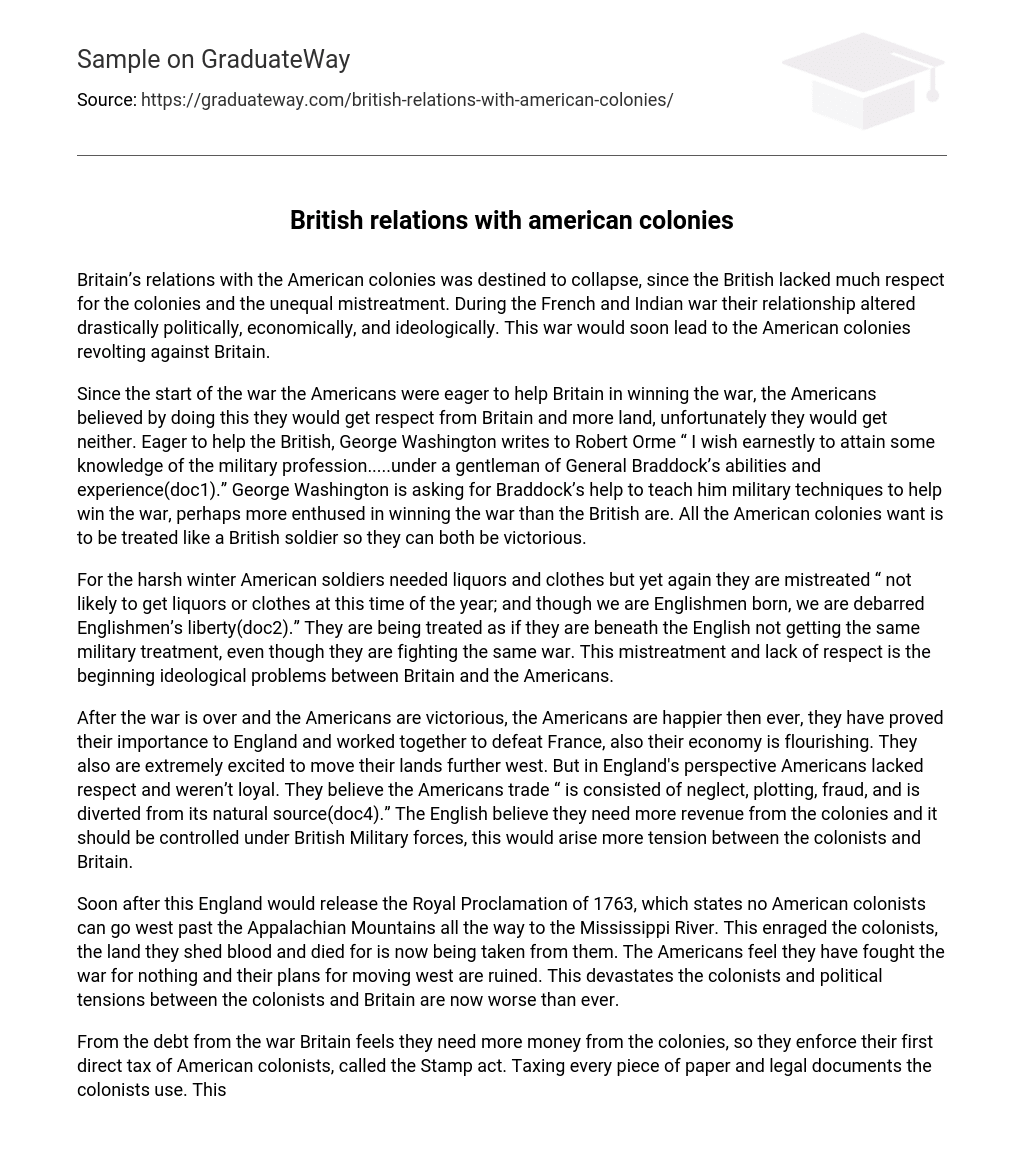Britain’s disrespect and unequal treatment of the American colonies resulted in a deterioration of their relations. The political, economic, and ideological transformation caused by the French and Indian war ultimately led to a revolt by the colonies against Britain.
From the onset of the war, the Americans were fervently supportive of Britain’s campaign for victory. They believed that by aligning with Britain, they would earn both admiration and territorial expansion. However, these aspirations went unfulfilled. George Washington, eager to assist Britain, wrote a letter to Robert Orme expressing his eagerness to gain military knowledge. He hoped to learn from the expertise of General Braddock (doc1) in order to contribute effectively to winning the war. Ultimately, the American colonies simply sought equal treatment as British soldiers, all striving towards a shared objective of triumph.
During the harsh winter, American soldiers faced a need for liquors and clothing. However, they were being mistreated, as it was unlikely for them to receive these necessities during this time of the year. Despite being Englishmen by birth, they were deprived of the liberties enjoyed by their fellow countrymen (doc2). This differential treatment demonstrated a lack of respect for the American soldiers in comparison to the English soldiers, who were both fighting in the same war. These instances of mistreatment and lack of respect marked the onset of ideological tensions between Britain and America.
After the war, the Americans emerge victorious and delighted, having demonstrated their significance to England and collaborated to defeat France. Their economy is thriving, and they eagerly anticipate expanding westward. However, from England’s viewpoint, the Americans are perceived as disrespectful and disloyal. The English assert that American trade is characterized by neglect, scheming, fraud, and diversion from its natural origins (doc4). They believe that they need more revenue from the colonies and should have military control over them, thereby escalating tensions between the colonists and Britain.
Shortly after, England released the Royal Proclamation of 1763. This proclamation forbade American colonists from venturing west of the Appalachian Mountains and extending to the Mississippi River. The colonists were infuriated by this restriction, as they had fought and sacrificed their lives for the very land that was now being seized from them. They considered their efforts in the war futile and their dreams of westward expansion shattered. This devastating situation intensified the political tensions between the colonists and Britain, reaching a new level of hostility.
Britain imposes the Stamp act, the first direct tax on American colonists, in an attempt to generate more revenue due to war debt. This tax encompasses all paper and legal documents used by the colonists. The imposition of this tax angers the Americans, who had previously fought for Britain and now feel betrayed by being taxed and restricted on the land they shed their blood for. However, instead of responding drastically to this taxation, Britain repeals the Stamp act, arguing that the colonies contribute to the crown as the ultimate center of profit from their trade. This leads to economic tensions, with Britain wanting more while Americans strive for increasing freedom and giving less. Subsequently, more acts follow such as the town-shed acts, the tea act, and the intolerable acts, sparking further unrest such as the Boston tea party and Boston massacre. All of these disputes and tensions arising from the French and Indian war ultimately culminate in the eruption of the American Revolution.
The French and Indian War permanently changed political, economic, and ideological relations between Britain and the American colonies. The mistreatment and tensions experienced from the British during this war ultimately resulted in a significant turning point and an inevitable revolution.





